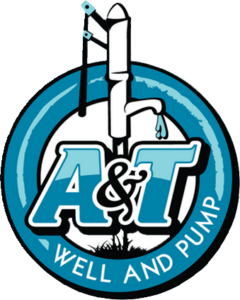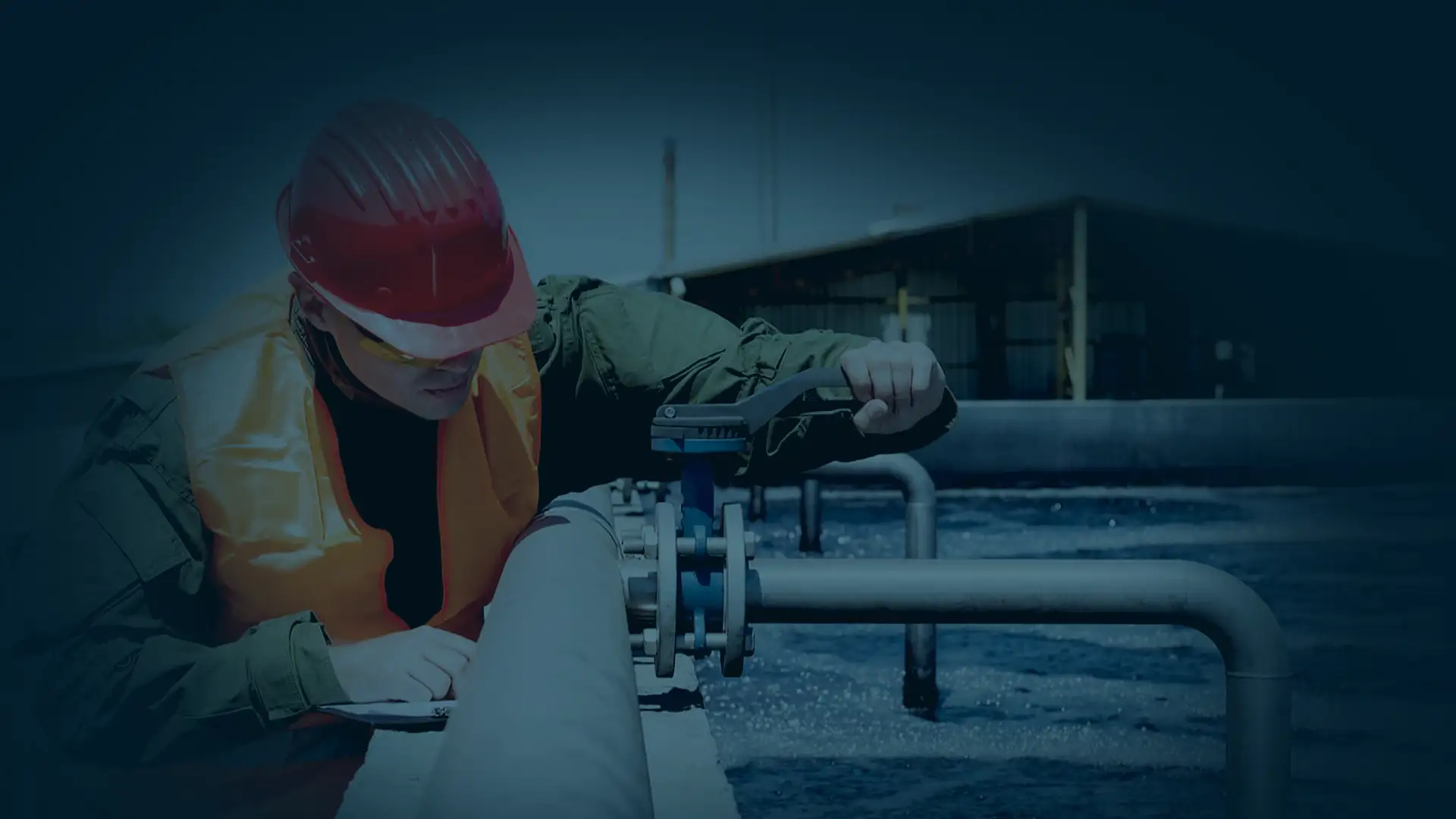Learn some useful trouble shooting tips that can help boost your water pressure if you're…
As a trusted provider of water well repair and installation services in Raleigh, NC, the experts at A&T Well and Pump understand the importance of a properly functioning pressure tank.
Whether you're a new homeowner with a water well system or looking to upgrade your existing setup, this guide will demystify the role of pressure tanks. Join us as we provide you with valuable insights into how pressure tanks affect your natural water supply, and how to choose the right type of pressure tank for your property.
What is a Pressure Tank?
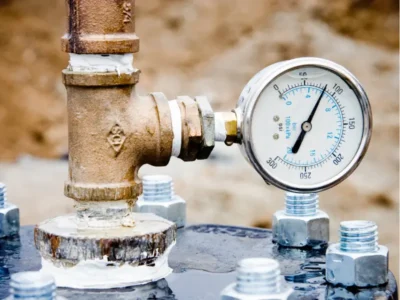
A pressure tank is a crucial component of a water well system. Its primary function is to store water under pressure, ensuring a consistent and reliable water supply to your home.
How Pressure Tanks Work
When your well pump draws water from the underground aquifer, it creates pressure in the water lines. The pressure tank acts as a buffer, absorbing excess pressure from the pump and storing water at a constant pressure until it's needed. This stored water is then distributed throughout your home whenever a faucet is opened or an appliance is in use.
What Do Pressure Tanks Do?
The pressure tank helps to regulate water pressure, reduce pump cycling, and extend the lifespan of your well system by minimizing wear and tear on the pump. The pressure tank plays a critical role in maintaining consistent water flow and pressure, ensuring that your household activities—from showering to watering the lawn—run smoothly without interruption.
Types of Water Well Pressure Tanks
Understanding the different types of water well pressure tanks is essential for homeowners to choose the right one for their well system.
Diaphragm Tanks
Diaphragm tanks, also known as membrane tanks, are among the most common types of pressure tanks used in water well systems. They feature a flexible rubber or butyl diaphragm that separates the water and air chambers within the tank. As water enters the tank, it compresses the air in the upper chamber, exerting pressure on the diaphragm. This pressurized air acts as a cushion, maintaining consistent water pressure throughout the system.
Advantages of Diaphragm Tanks
- Excellent at maintaining consistent water pressure
- Resistant to corrosion and rust, prolonging the tank's lifespan
- Typically more compact in size, making them suitable for smaller spaces
- Lower maintenance requirements compared to traditional galvanized tanks
Potential Drawbacks of Diaphragm Tanks
- Diaphragm tanks may be more expensive upfront than other types of pressure tanks
- The diaphragm can degrade over time and may need to be replaced periodically
Bladder Tanks
Bladder tanks operate similarly to diaphragm tanks but feature a separate bladder or balloon-like membrane instead of a diaphragm. The bladder is filled with air, and as water enters the tank, it compresses the bladder, increasing the pressure within the tank. Like diaphragm tanks, bladder tanks are effective at maintaining consistent water pressure and are commonly used in residential well systems.
Advantages of Bladder Tanks
- Highly efficient at maintaining water pressure and flow rate
- The bladder design minimizes the risk of waterlogging, which can occur in traditional galvanized tanks
- Easy to install and require minimal maintenance
- Available in a variety of sizes to accommodate different well systems
Disadvantages Associated with Bladder Tanks
- Bladder tanks can be more expensive than traditional galvanized tanks
- Over time, the bladder may develop leaks or tears, requiring replacement
Traditional Galvanized Tanks
Traditional galvanized pressure tanks, also known as atmospheric tanks, are the oldest type of pressure tanks used in water well systems. They consist of a steel tank with a rubber diaphragm or air volume control to separate the water and air chambers. Unlike diaphragm and bladder tanks, traditional galvanized tanks are open to the atmosphere, which means they rely on gravity to maintain water pressure.
Advantages of Traditional Galvanized Tanks
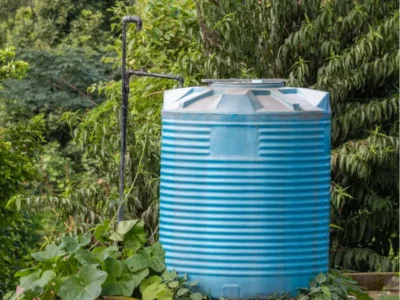
- Lower initial cost compared to diaphragm and bladder tanks
- Simple design and easy to install
- Suitable for basic well systems with low to moderate water usage
Considerations for Galvanized Tank Installation
- More prone to waterlogging, which can affect water pressure and performance
- Susceptible to corrosion and rust over time, especially in areas with hard water
- Require regular maintenance, including checking air pressure and inspecting for leaks
Tips for Choosing the Right Pressure Tank
Choosing the right pressure tank for your water well system is essential to ensure reliable water pressure, minimize pump cycling, and extend the lifespan of your well equipment.
Here are some tips to help you select the perfect pressure tank for your property:
- Consider Your Water Usage: Determine your household's average water usage, including peak demand periods such as morning showers or laundry days. This information will help you calculate the necessary tank size to meet your needs.
- Evaluate Well Pump Capacity: Take into account the capacity and flow rate of your well pump. A pressure tank should complement the pump's performance to ensure optimal efficiency and prevent overworking the pump.
- Determine Available Space: Measure the available space for installing the pressure tank, considering factors such as height, width, and clearance requirements. Choose a tank size and shape that fits comfortably within your designated installation area.
- Select the Appropriate Type of Tank: Consider the advantages and drawbacks of different types of pressure tanks. Choose the type that best suits your budget, space constraints, and performance requirements.
- Consult a Professional: If you're unsure about which pressure tank is best suited for your well system, consult with a qualified Raleigh well technician. At A&T Well and Pump, we can assess your needs and recommend the most suitable pressure tank size and type.
Benefits of Pressure Tanks for Water Wells
Pressure tanks play a crucial role in maintaining the efficiency and reliability of water well systems, offering a range of benefits for homeowners.
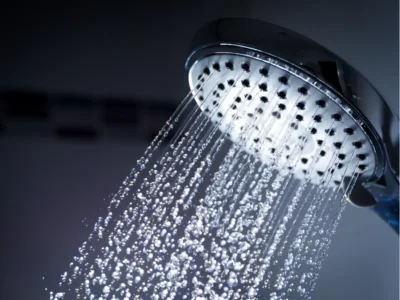
Here are some key advantages of using pressure tanks:
- Consistent Water Pressure: Pressure tanks help maintain consistent water pressure throughout your home, ensuring a steady flow of water for various household activities, from showering, washing dishes, and watering the lawn.
- Reduced Pump Cycling: By storing water under pressure, pressure tanks minimize pump cycling, which helps prolong the lifespan of the well pump and reduces energy consumption.
- Protection Against Water Hammer: Pressure tanks act as a buffer, absorbing pressure surges and preventing water hammer—a phenomenon that can damage pipes and fixtures.
- Extended Pump Life: By reducing the frequency of pump starts and stops, pressure tanks help extend the lifespan of the well pump, saving you money on well pump replacement or repairs.
- Improved Water Quality: Pressure tanks can help improve water quality by reducing sediment and contaminants in the water supply, resulting in cleaner, clearer water for your home.
- Emergency Backup Supply: In the event of a power outage or pump failure, pressure tanks provide a backup supply of pressurized water, ensuring continued access to water for essential tasks.
Contact Our Water Well Installation and Maintenance Experts in Raleigh Today
Ready to optimize your water well system with expert installation and maintenance services? Don't hesitate to reach out to our team of water well installation and maintenance experts in Raleigh today. Whether you need assistance with selecting the right pressure tank, installing a new well system, or scheduling routine maintenance, A&T Well and Pump is here to help.
Contact us now to schedule a consultation or schedule a video well inspection and experience the difference our expertise can make in ensuring a reliable and efficient water supply for your home.
Call us at (919) 980-0981 or fill out the form below to get started.
Contact Form
We would love to hear from you! Please fill out this form and we will get back to you shortly.
"*" indicates required fields
